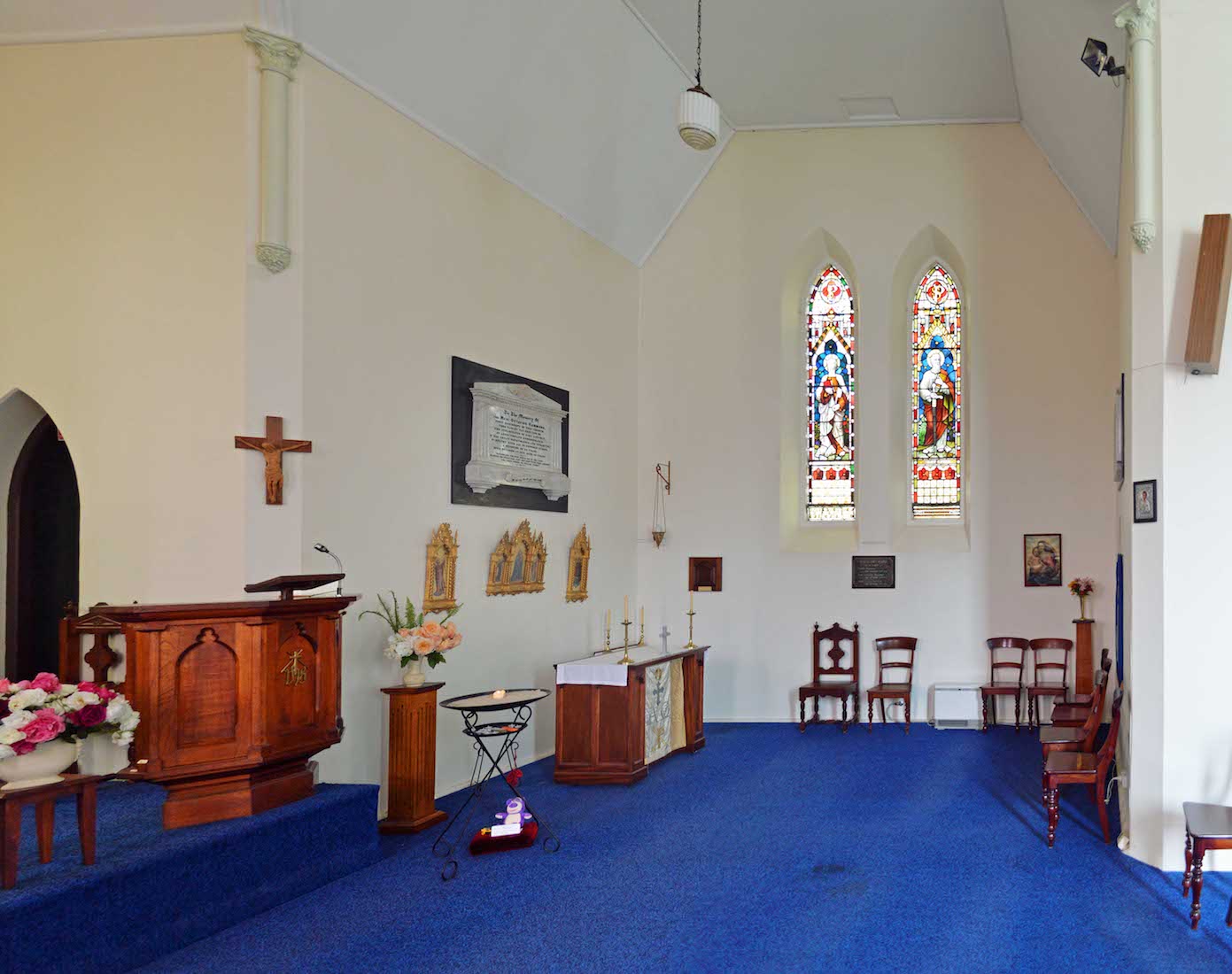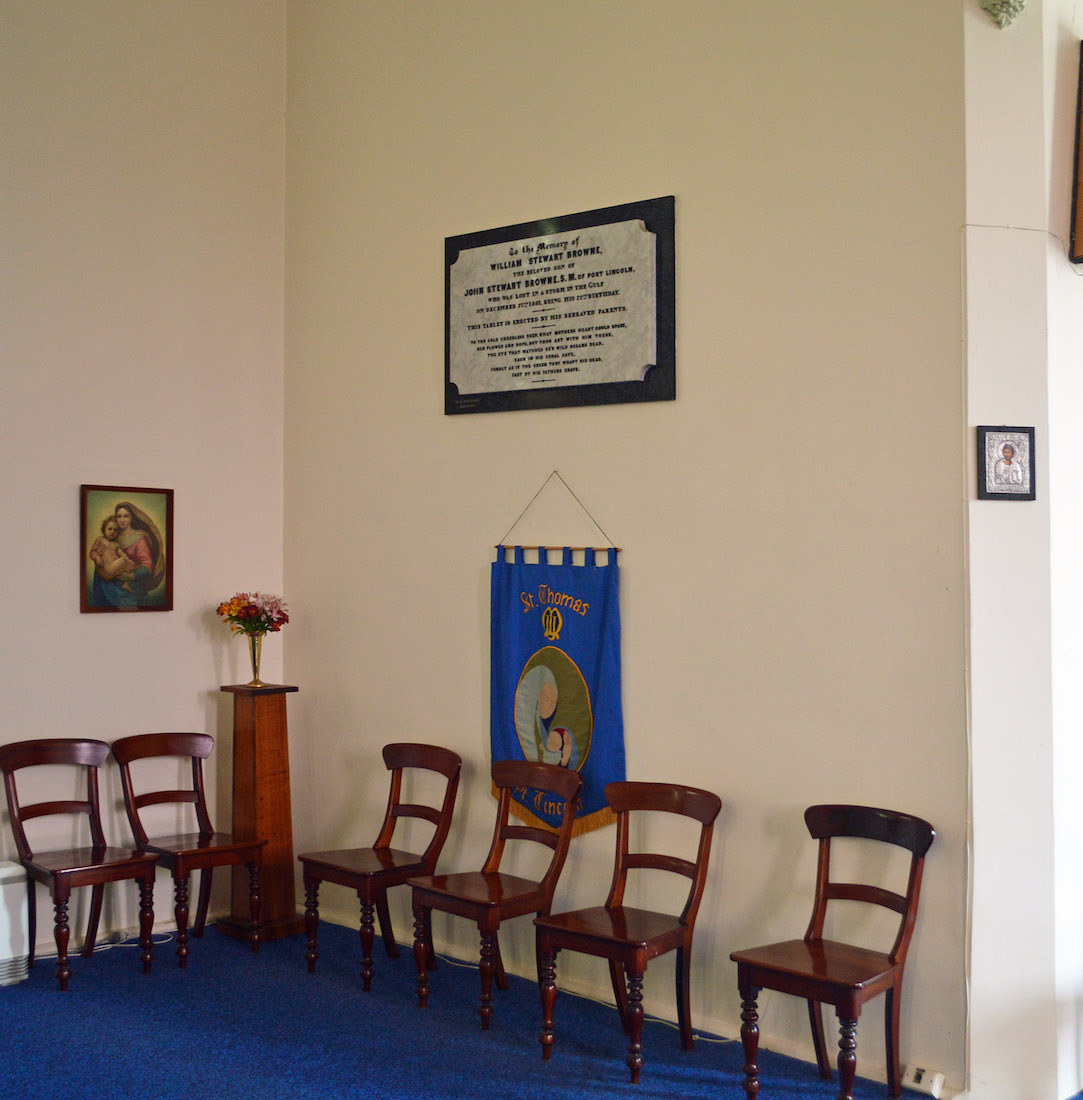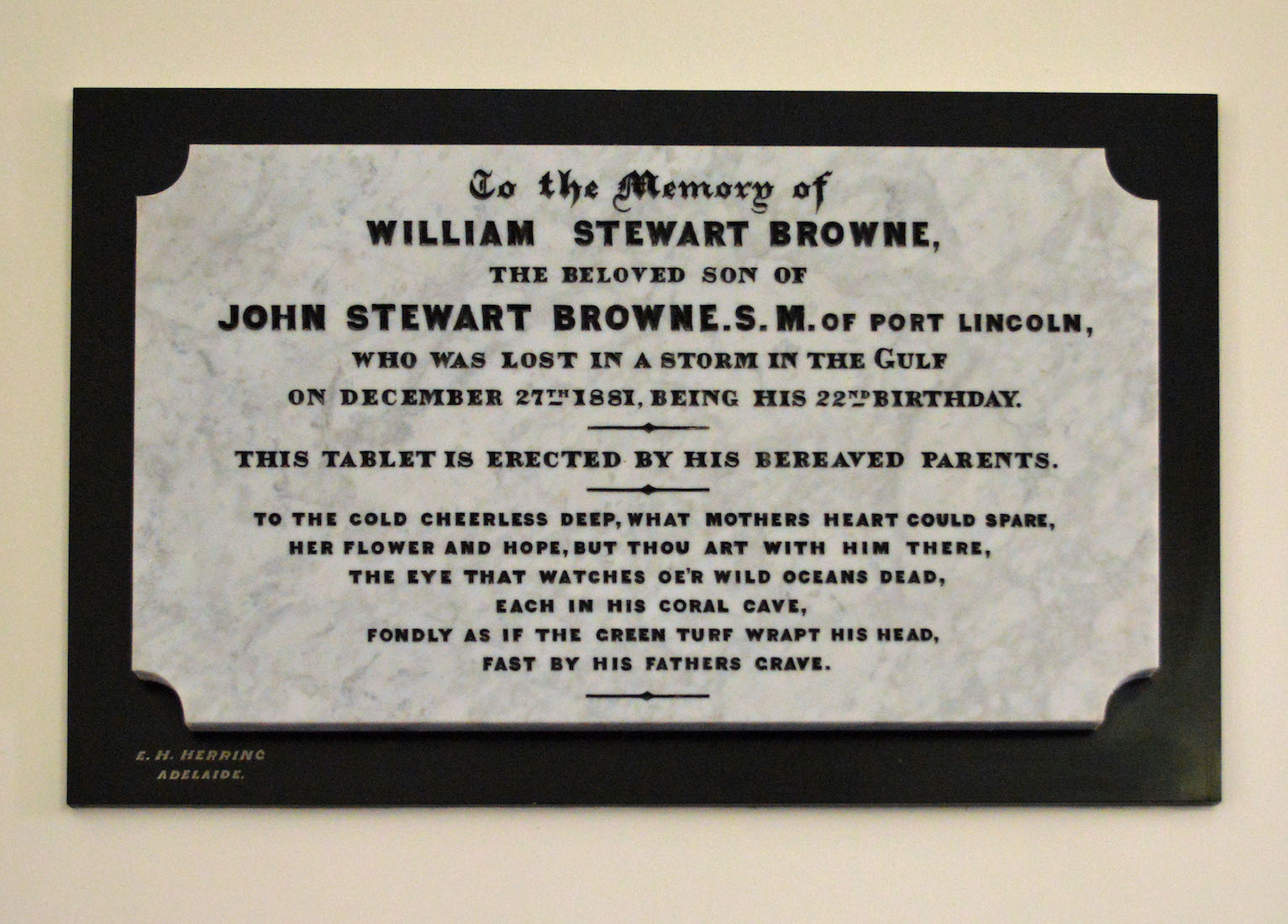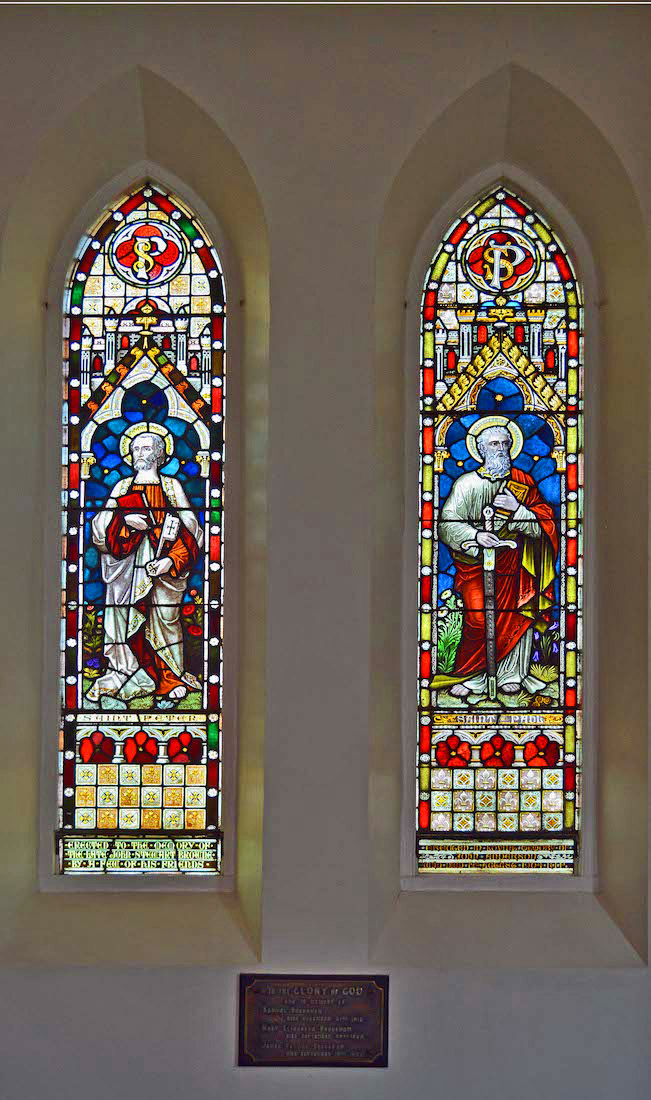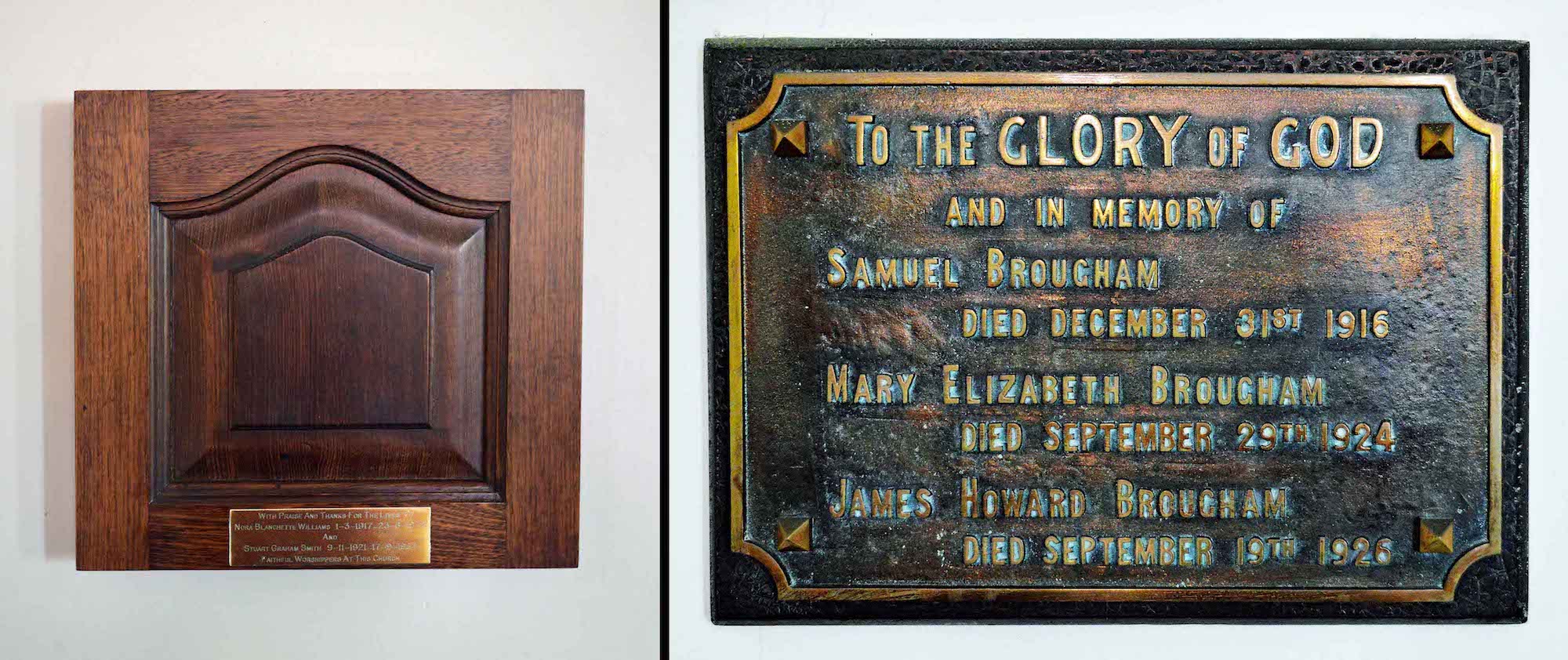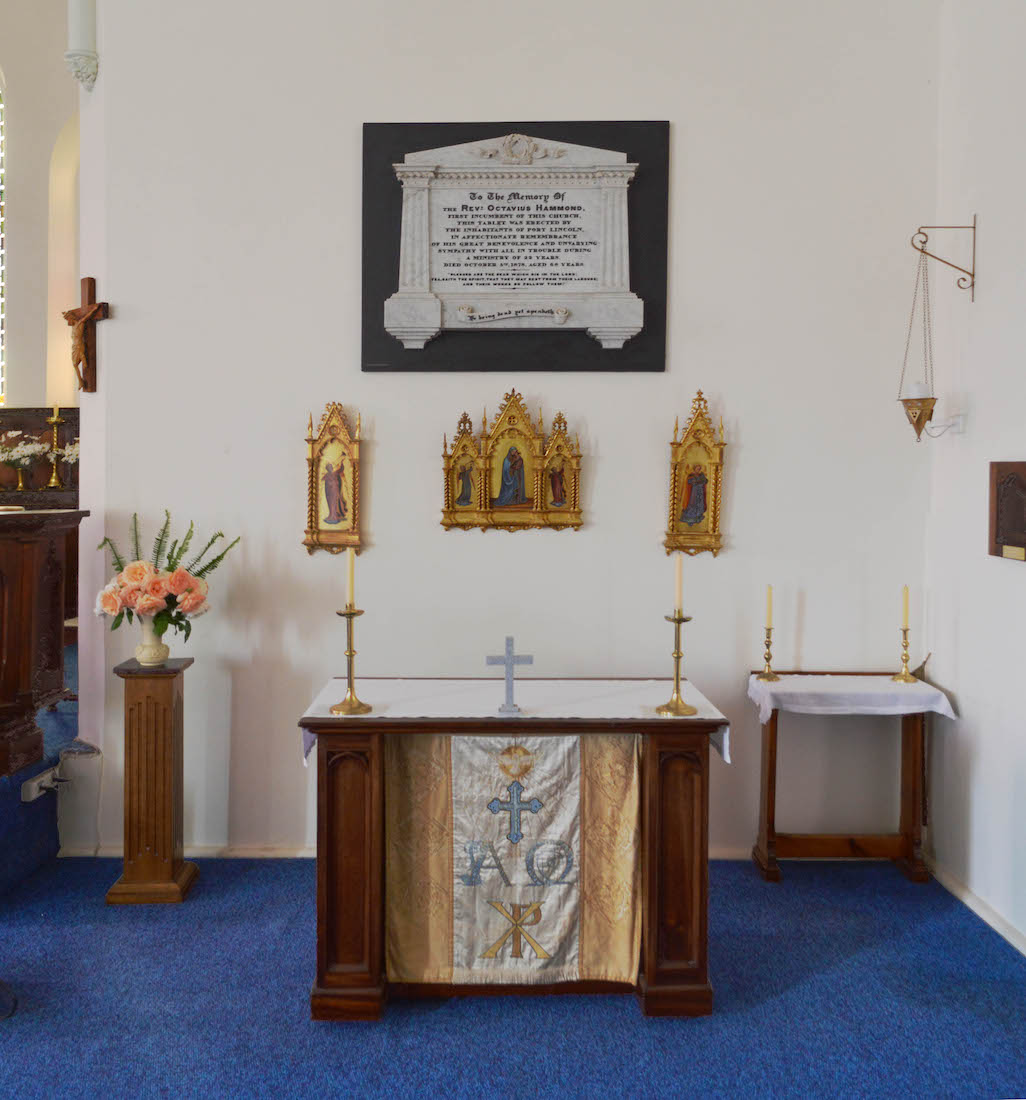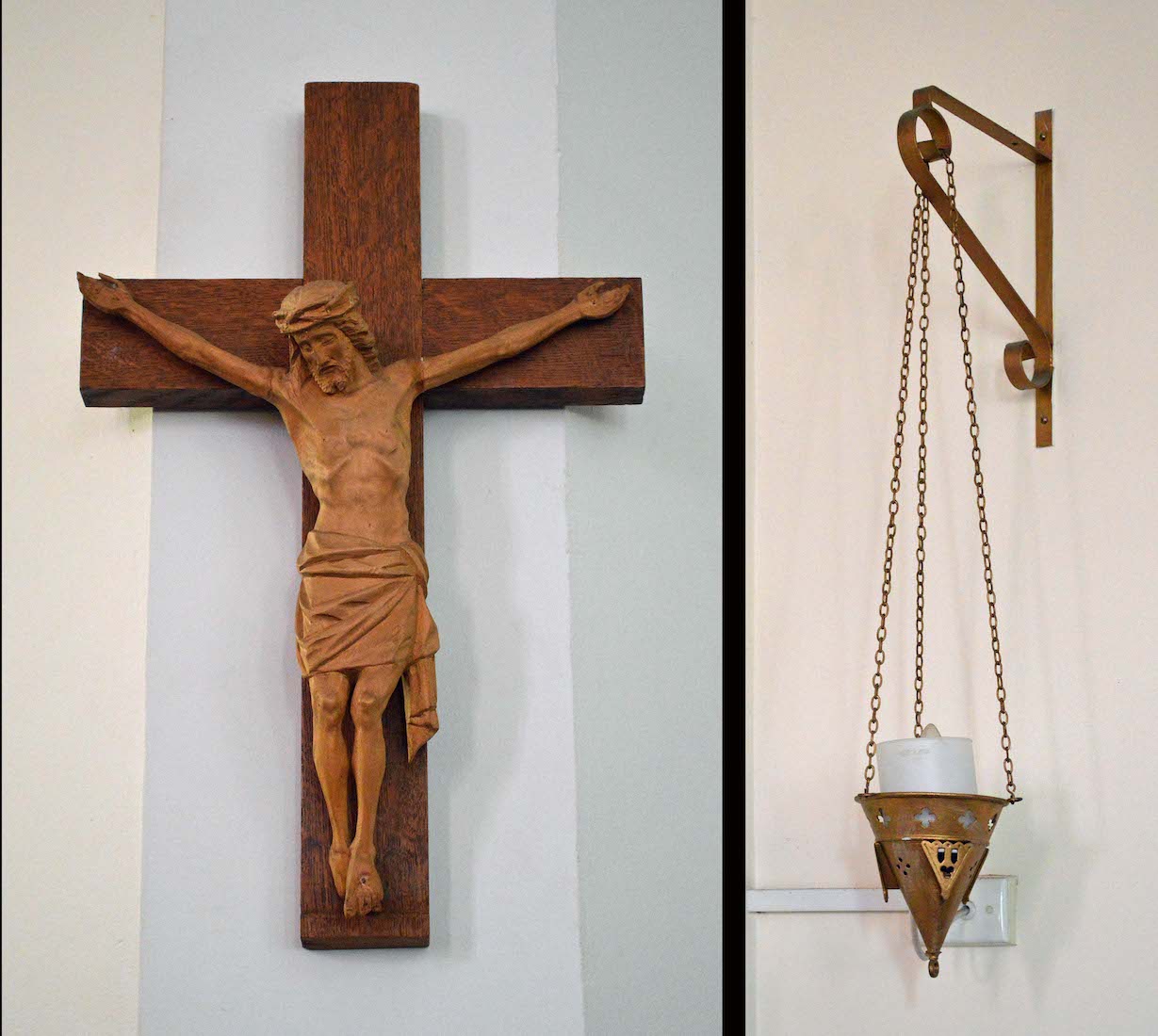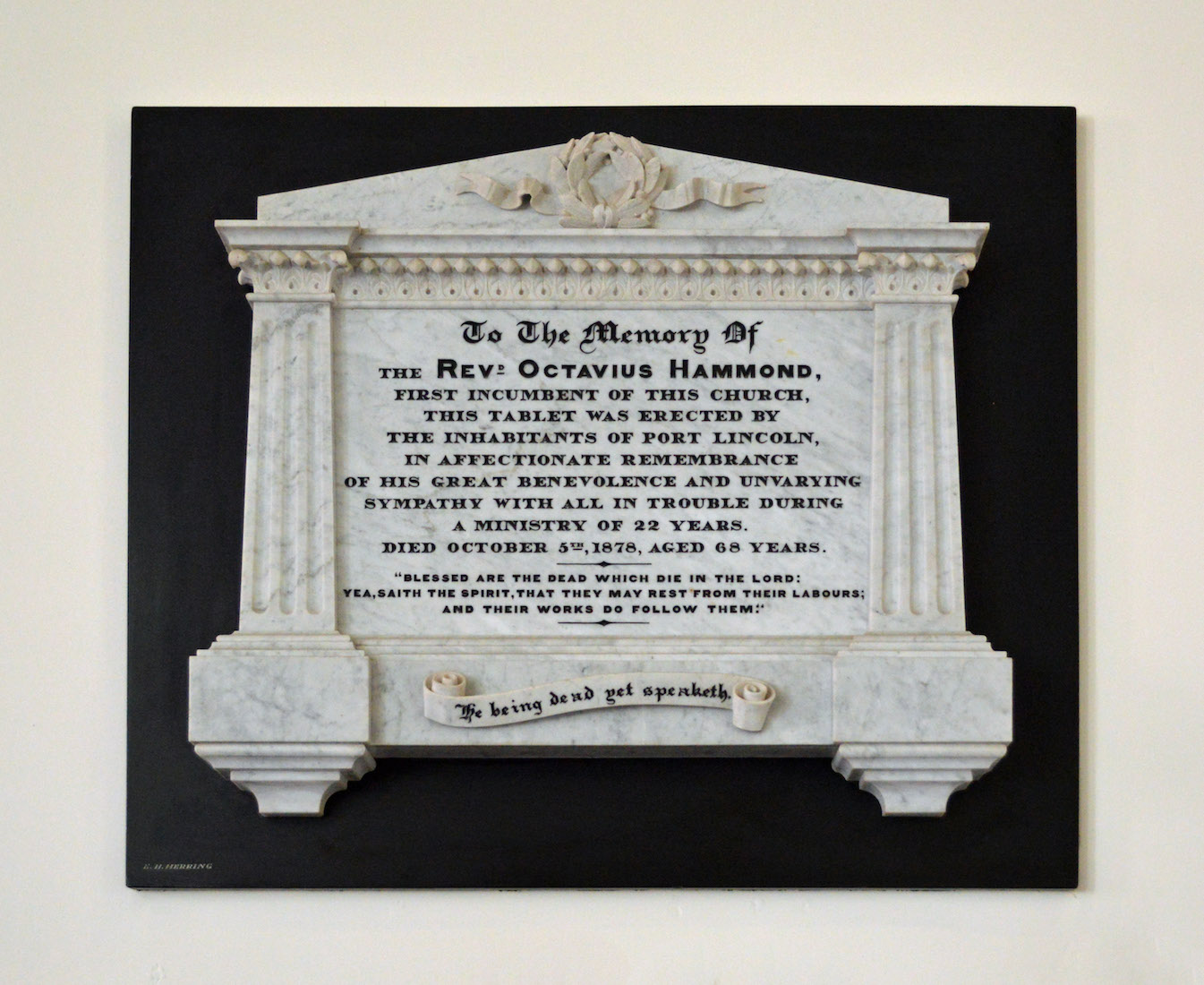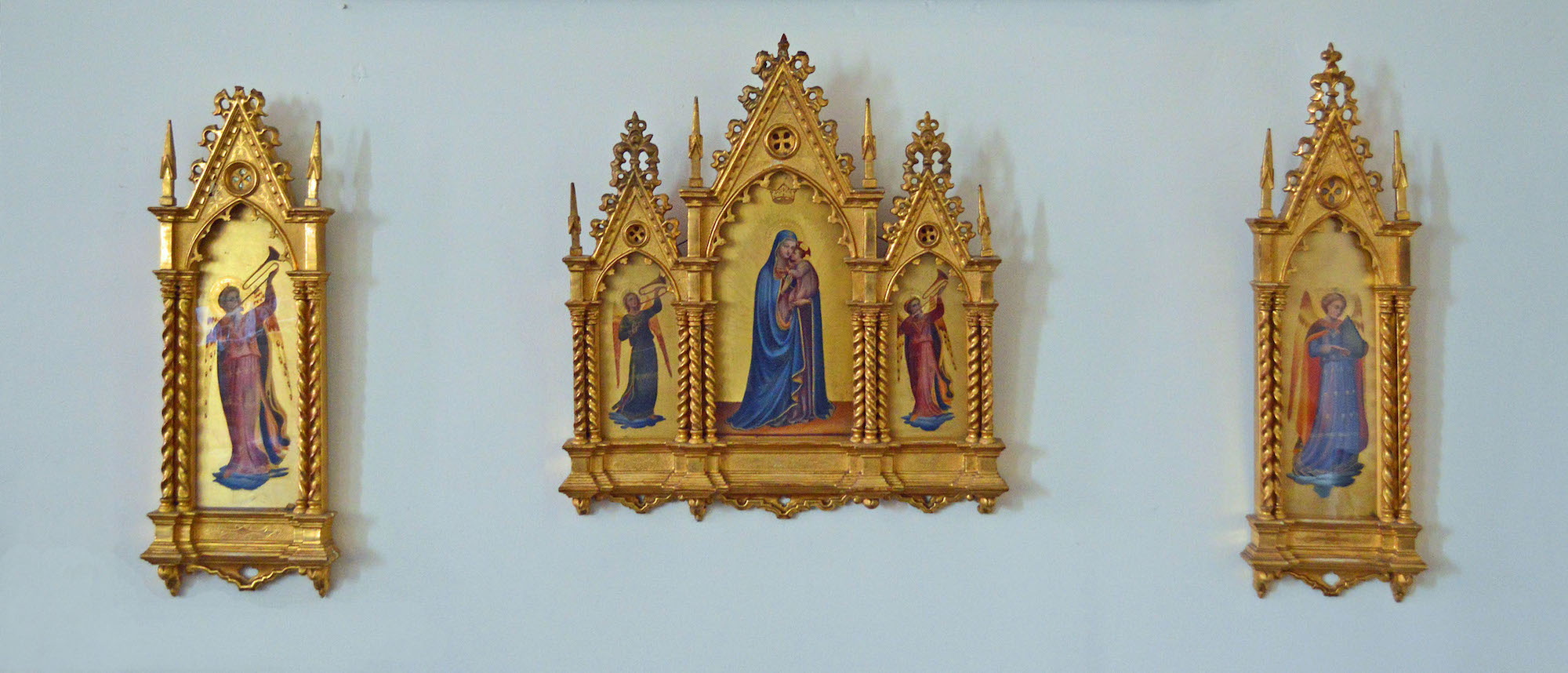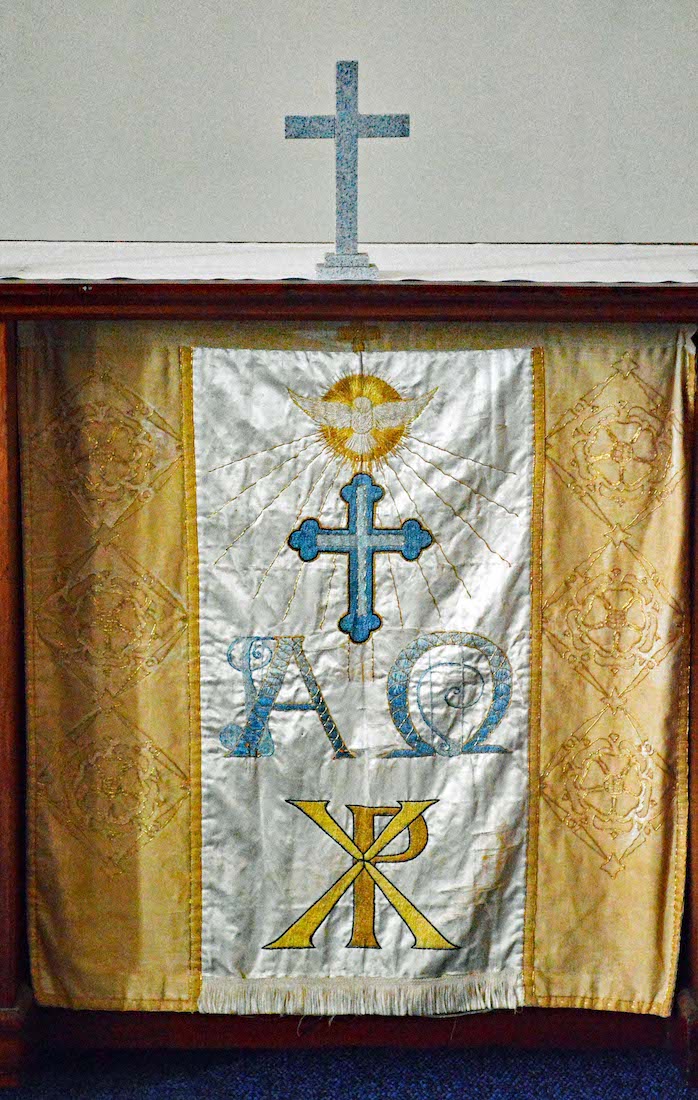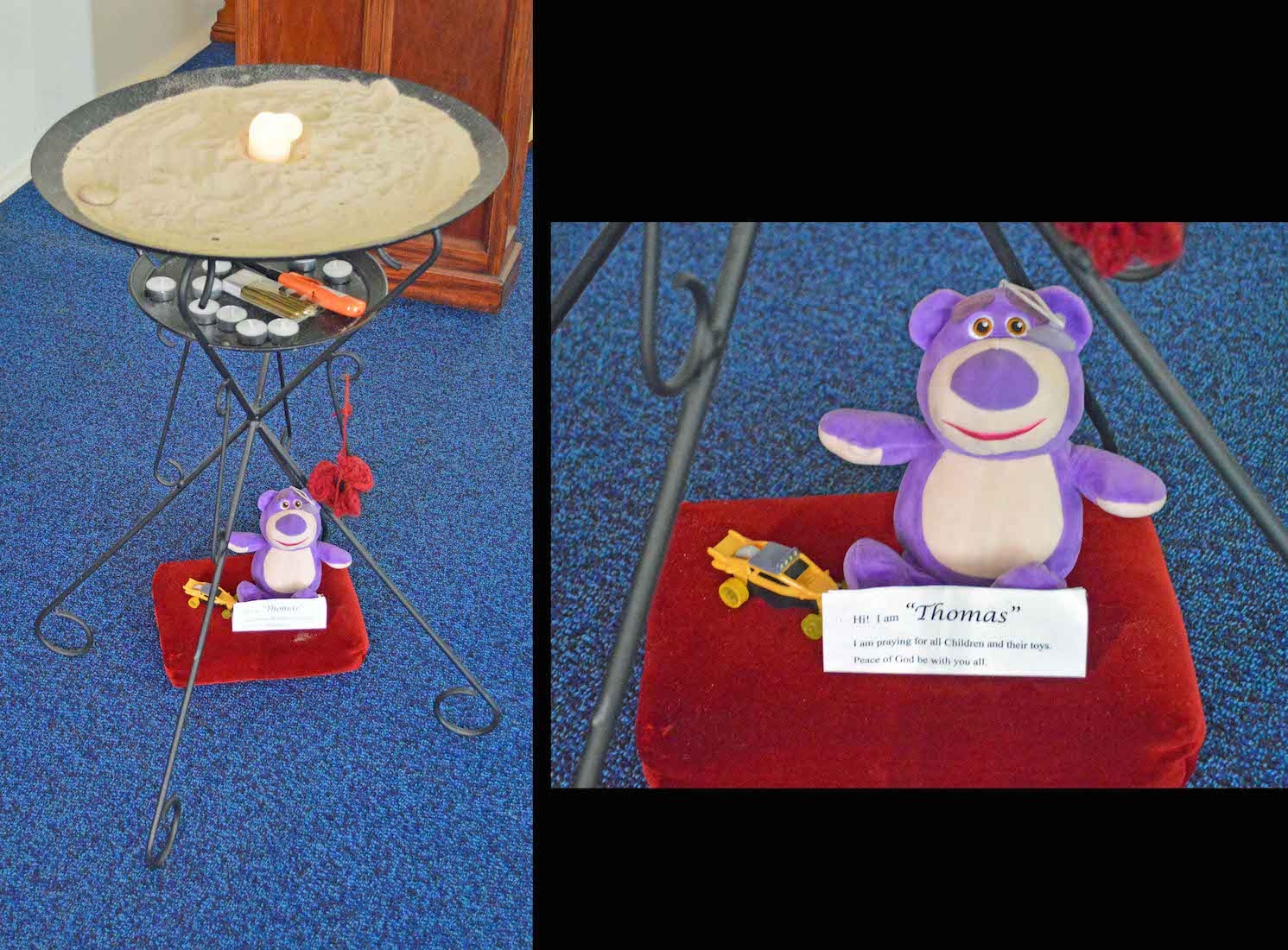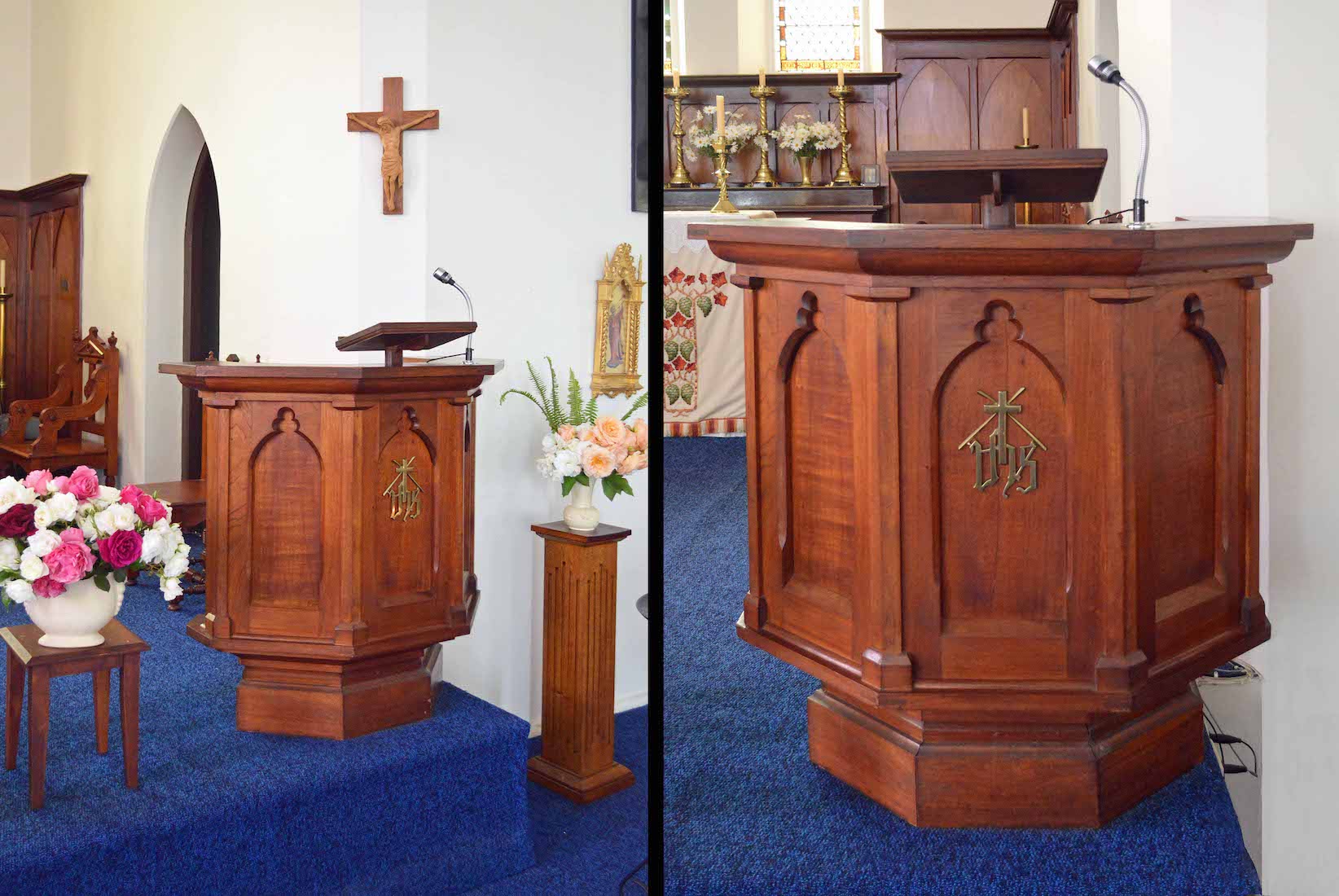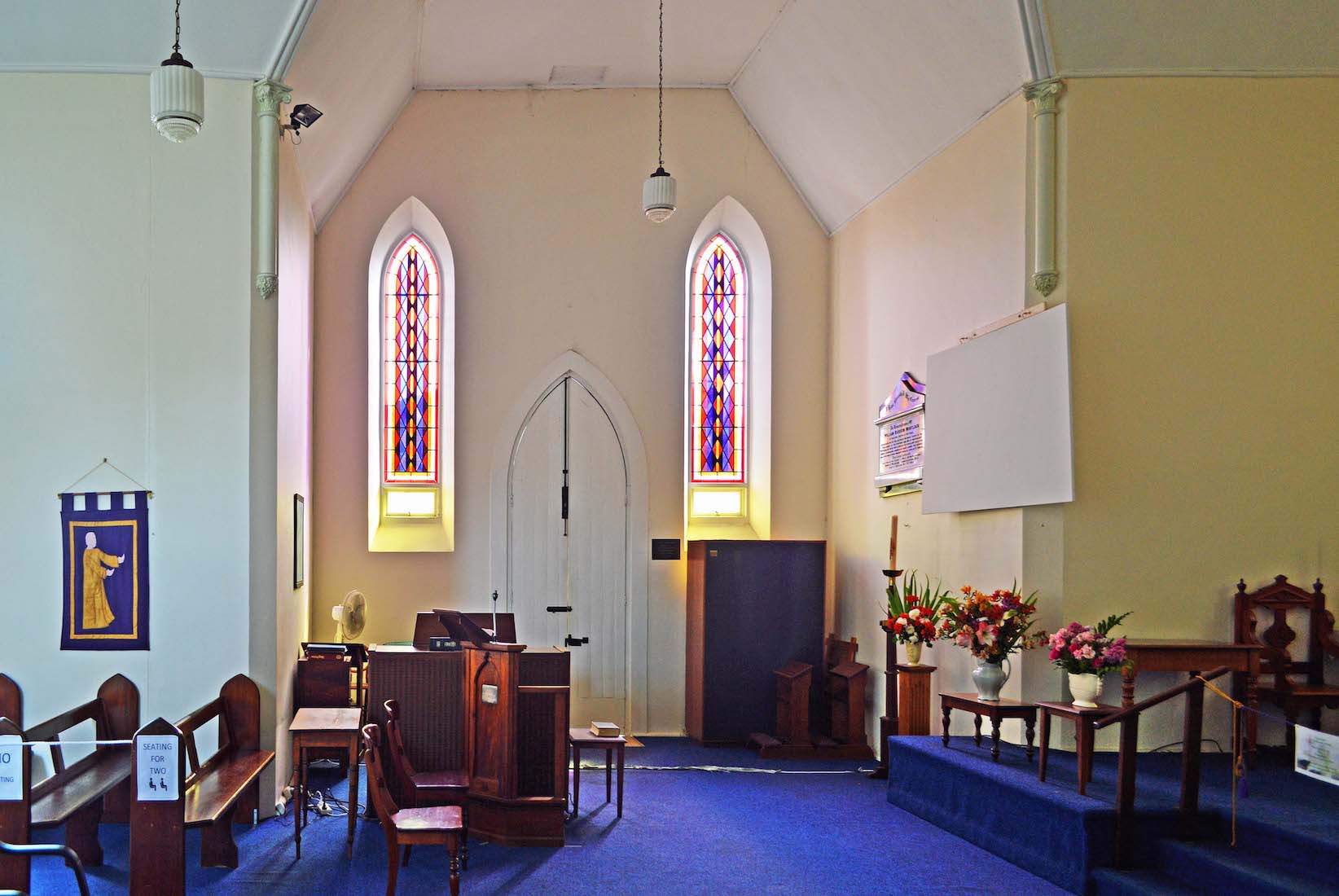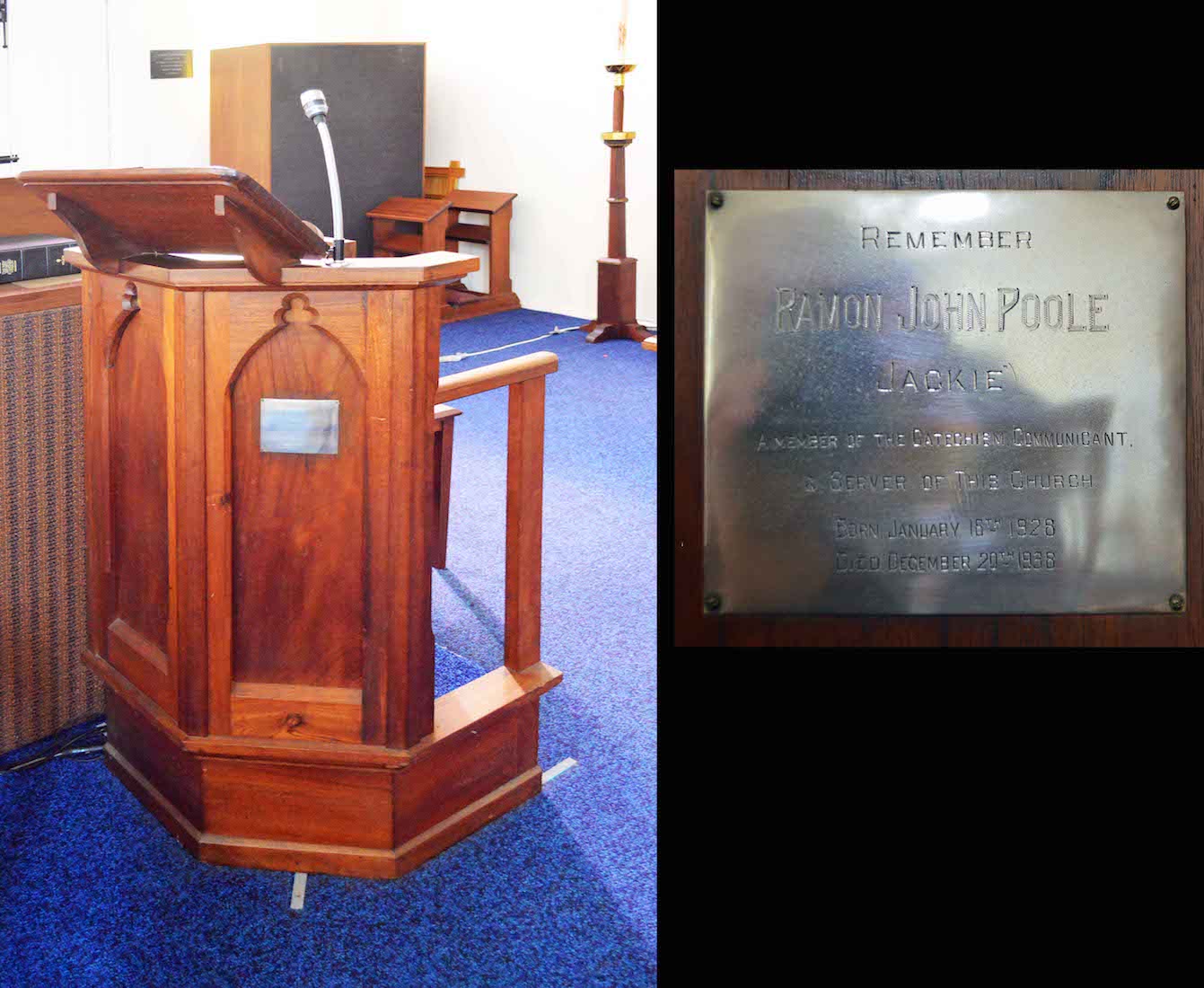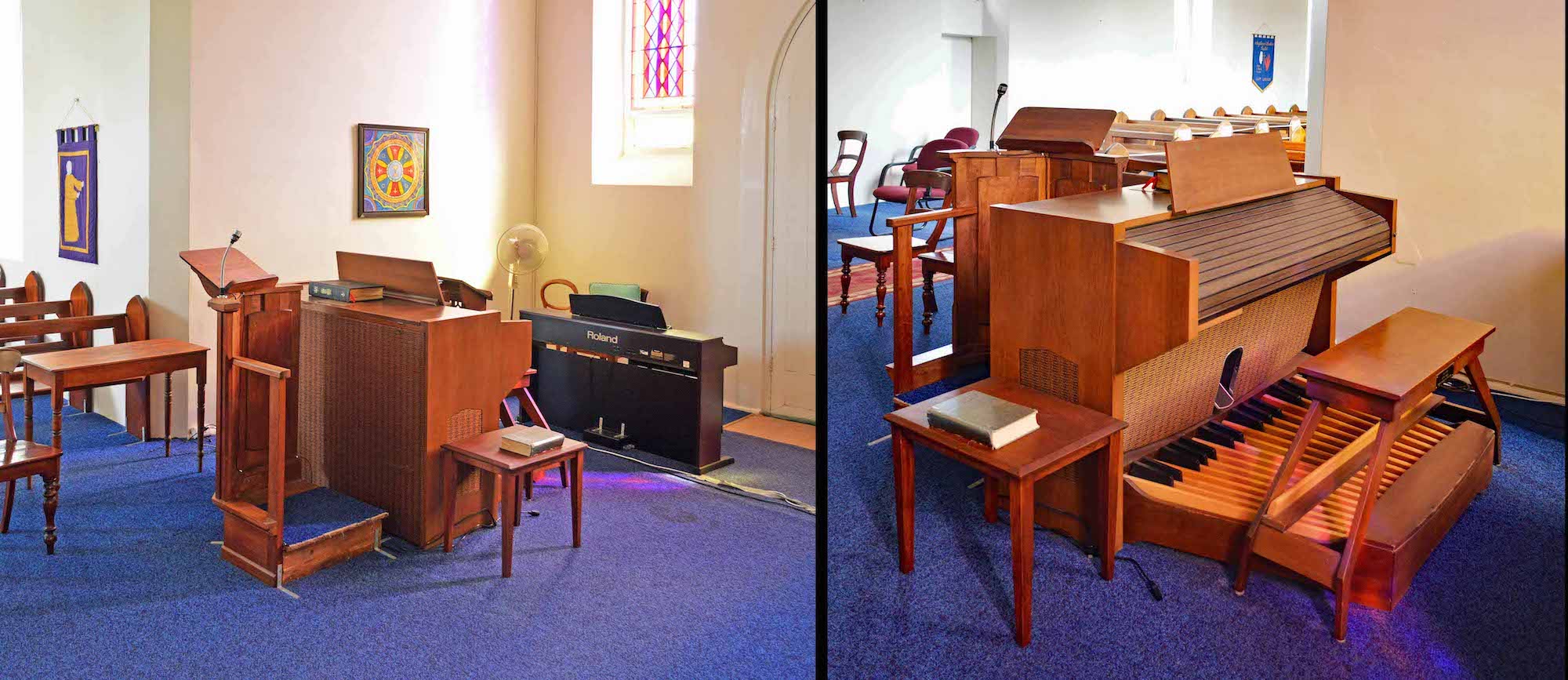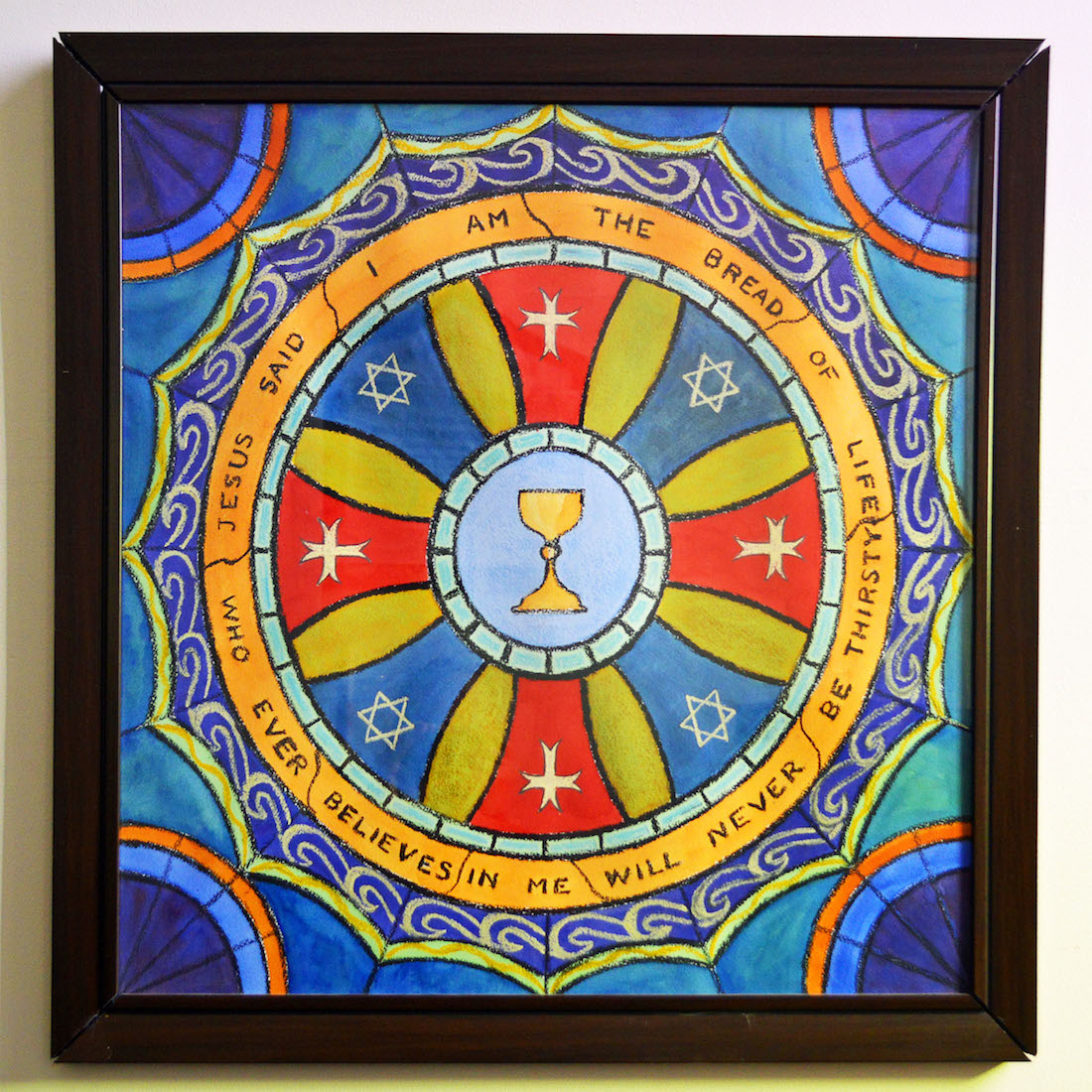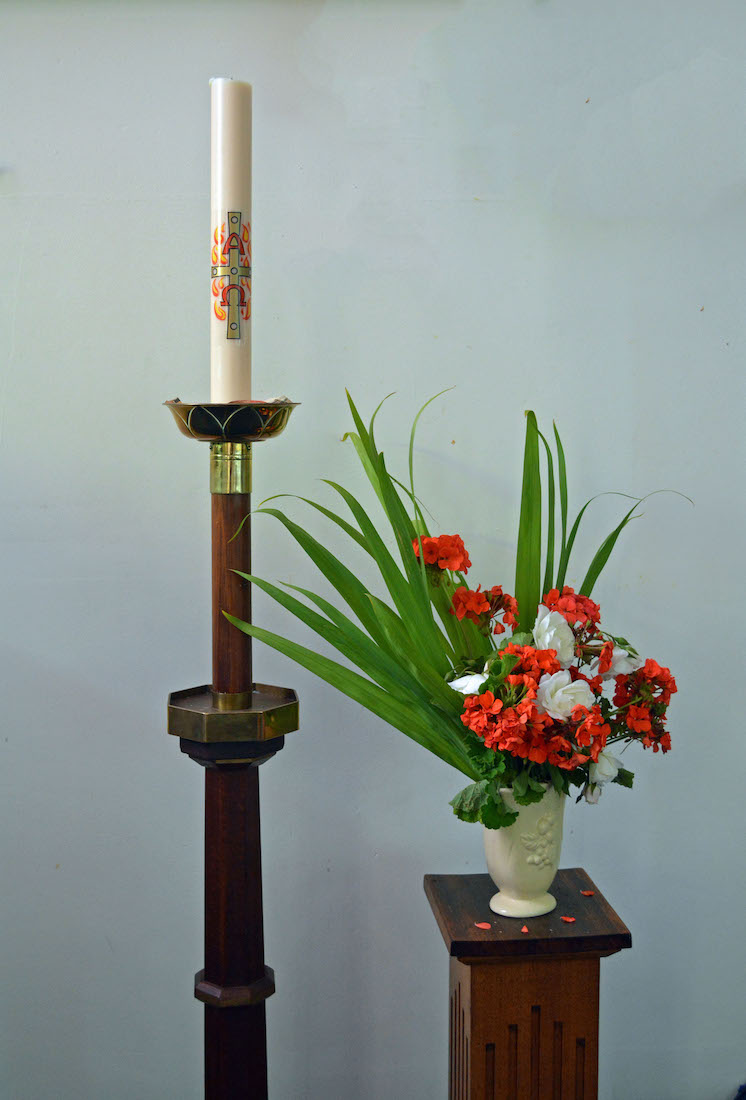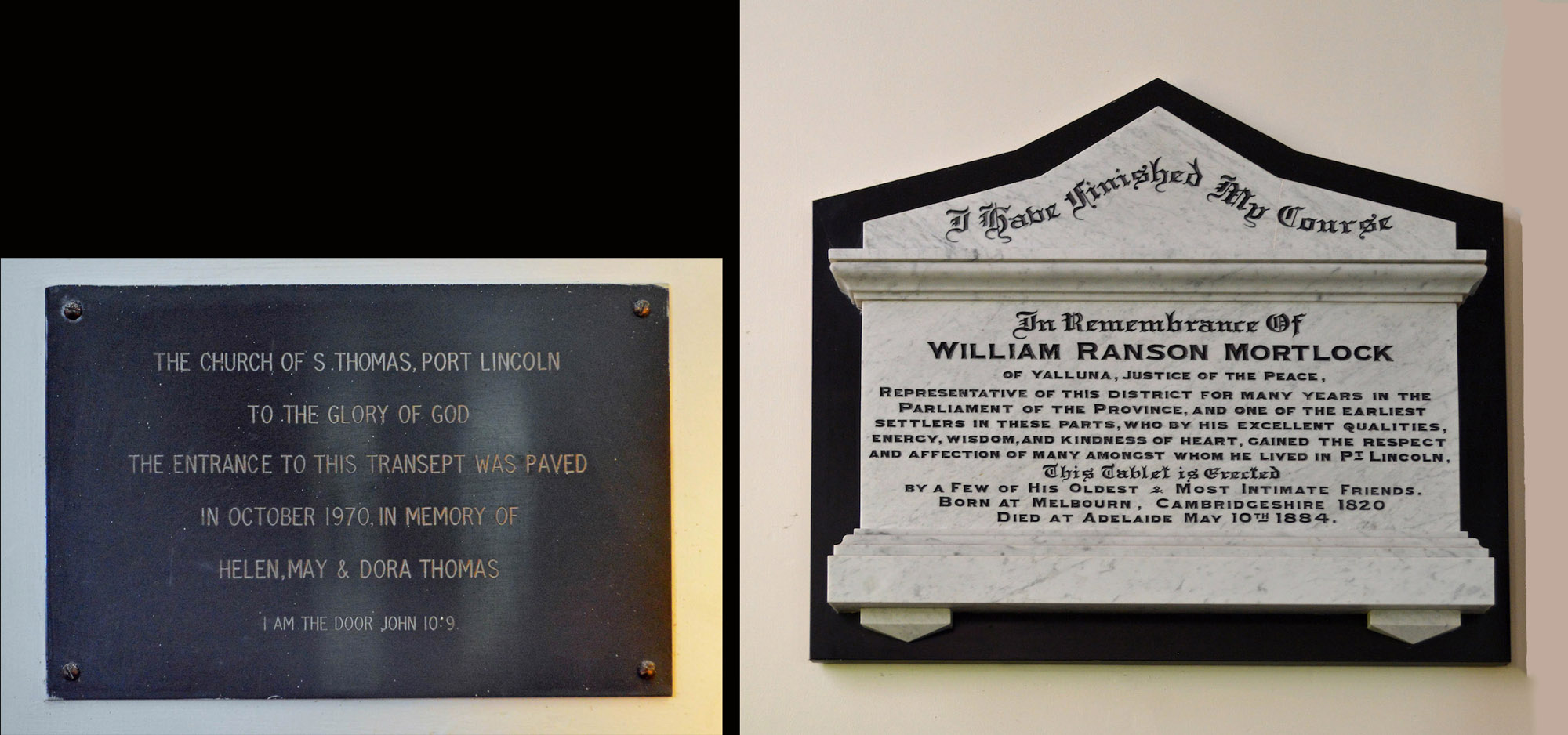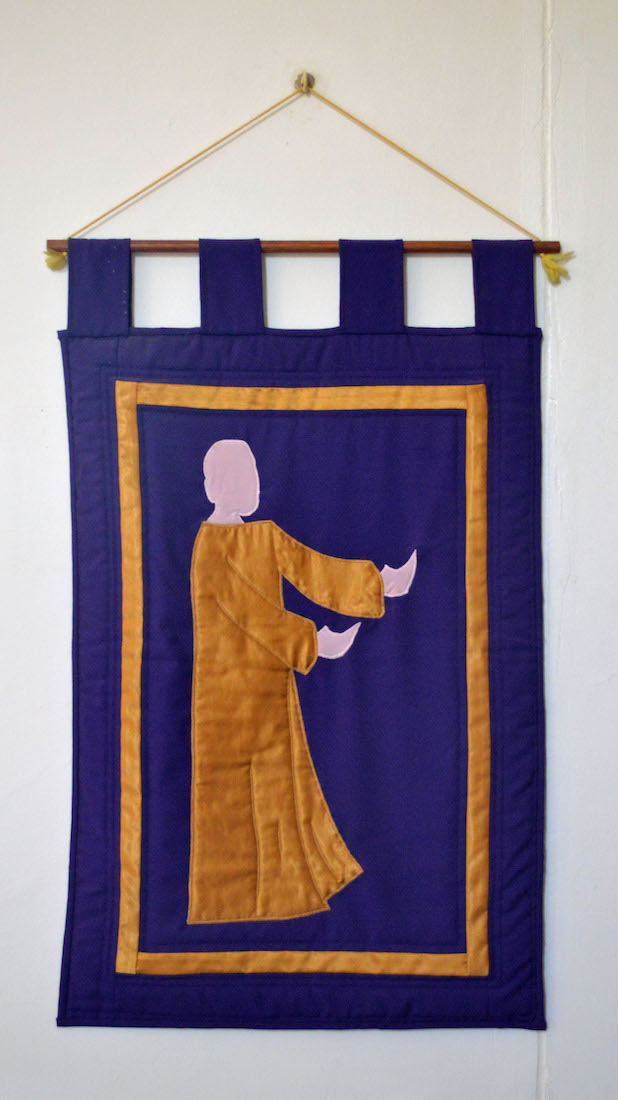
I am quite intrigued by this banner. It shows a simple welcoming figure, but there is no explanation, no attempt at identification. One is tempted to say it is Christ welcoming the repentant sinner, but then it might equally depict Christ in me as I welcome ... ? INDEX
23. WEST WALL OF THE TRANSEPT
On this side of the South transept is a large memorial tablet, a framed painting of the Madonna and Child, a banner, and a silver icon of Christ.
24. MEMORIAL TABLET
This tablet remembers William Stewart Browne who was lost in a storm in the Gulf at age 22. It concludes with a poem which is quite touching: ‘To the cold cheerless deep, what mother’s heart could spare, // her flower and hope, but Thou art with him there, // The eye that watches o’er wild oceans dead, // each in his coral cave, // fondly as if the green turf wrapt his head, // fast by his father’s grave.’
25. PAINTING, BANNER AND ICON
At left is a print of a painting, Madonna and Child, by Raphael. At centre is Port Lincoln Mothers’ Union banner with the same theme. And at right is an embossed silver icon of Christ offering a blessing. It appears to be modelled on an antique Russian icon dating from around 1880.
26. SOUTH TRANSEPT WINDOWS
These South transept windows depict St Peter at left (with his Keys of the Kingdom), and St Paul at right (often shown with a sword). Since Paul’s former life is unlikely to be celebrated, we may assume the allusion here is to the ‘sword of the Spirit’ which is the Word of God. Paul talks about this in Ephesians 6.
27. TWO MEMORIALS
There are two memorials on the South wall of the South transept. The wooden panel at left is curious, and needs some explaining. The little plate at the base says that this remembers two faithful worshippers at this Church: Nora Blanchette Williams, and Stuart Graham Smith. The memorial at right remembers Samuel, Mary and James – members of the Brougham family – an old and respected family who lived in Port Lincoln.
28. SOUTH TRANSEPT CHAPEL
The South transept is set out as a chapel, with an altar against the East wall. It appears to be unnamed, but may well be a Lady Chapel, from looking at the three metallic works hanging on the wall behind the altar. There is a cross and two candlesticks on the altar. We first look at the crucifix and sanctuary lamp (extreme left and right), and the memorial tablet above the altar.
29. CRUCIFIX AND SANCTUARY LAMP
The crucifix hangs above the pulpit. It is a visible reminder of the sacrifice of Christ, a fundamental of the Christian faith. An interesting question is why Jesus is almost always shown with his head inclined to the left (his right). The sanctuary lamp is usually lit to show the presence of the reserved Elements of the Eucharist, but there appears to be no place for these in this chapel.
30. MEMORIAL TABLET
This is another of the several large memorial tablets on the walls of St Thomas’ Church. This one is particularly meaningful, remembering the Revd Octavius Hammond who was the first priest of this Church and served for 22 years. He was obviously much loved and respected and died in 1878 at the age of 68. The scroll at the bottom reads: ‘He being dead yet speaketh’.
31. CHAPEL FIGURES
Traditionally an altar is backed by a screen or reredos. Here there are three artworks depicting Mary holding the baby Jesus, and surrounded by musical angels. As a retired brass band player, I would have to say that the musical instruments are a little fanciful!
32. ALTAR CLOTH
The altar cloth has four well known symbols: a descending dove (alluding to the Holy Spirit), a budded Cross (a reference to Christ); Alpha and Omega (the first and last letters of the Greek alphabet, and a reference to Christ as the Beginning and the End, the First and the Last (Rev 22:13)), and the Chi-Rho (X-P) symbol standing for Christ.
33. CHILDREN’S PRAYER POINT
Near the pulpit is a little candle stand and an encouragement for children to pray. Thomas is an interesting character!
34. PULPIT
The pulpit is the place from where the sermon is preached week by week. This pulpit has a small golden ‘ihs’ ornamentation – the abbreviation for ‘Jesus’. Unusually this pulpit is placed on the South side of the nave; in most churches, for some unknown reason, it is placed on the North side.
36. LECTERN
The lectern normally holds a Bible, and it is from here that the Scripture is read. This lectern was given in memory of Ramon John Poole (Jackie) who was a server in this Church.
37. ORGANS
There are two small organs in this transept which provide music for the services.
38. WALL DISK
There is an attractive disk on the West wall of this transept. There is a central chalice, surrounded by alternating crosses and stars of David. Around the outside is the text: ‘Jesus said I am the Bread of Life // Who ever believes in me will never be thirsty’. Both statements are true, but ... !
39. PASCHAL CANDLE
The Paschal candle, or Easter candle, is commonly found in Anglican and Catholic churches. It illustrates the fact that Jesus is the Light of the World. The candle has special prominence at Easter time and on other special occasions.
40. NORTH TRANSEPT PLAQUE AND TABLET
The smaller plaque by the door remembers Helen, May and Dora Thomas. The tablet on the East wall of the transept commemorates the life of William Ranson Mortlock who was a parliamentary representative of the district, and one of the earliest settlers. He lived from 1820 to 1884. Mortlock Terrace in the city undoubtedly gains its name from this prominent family.


